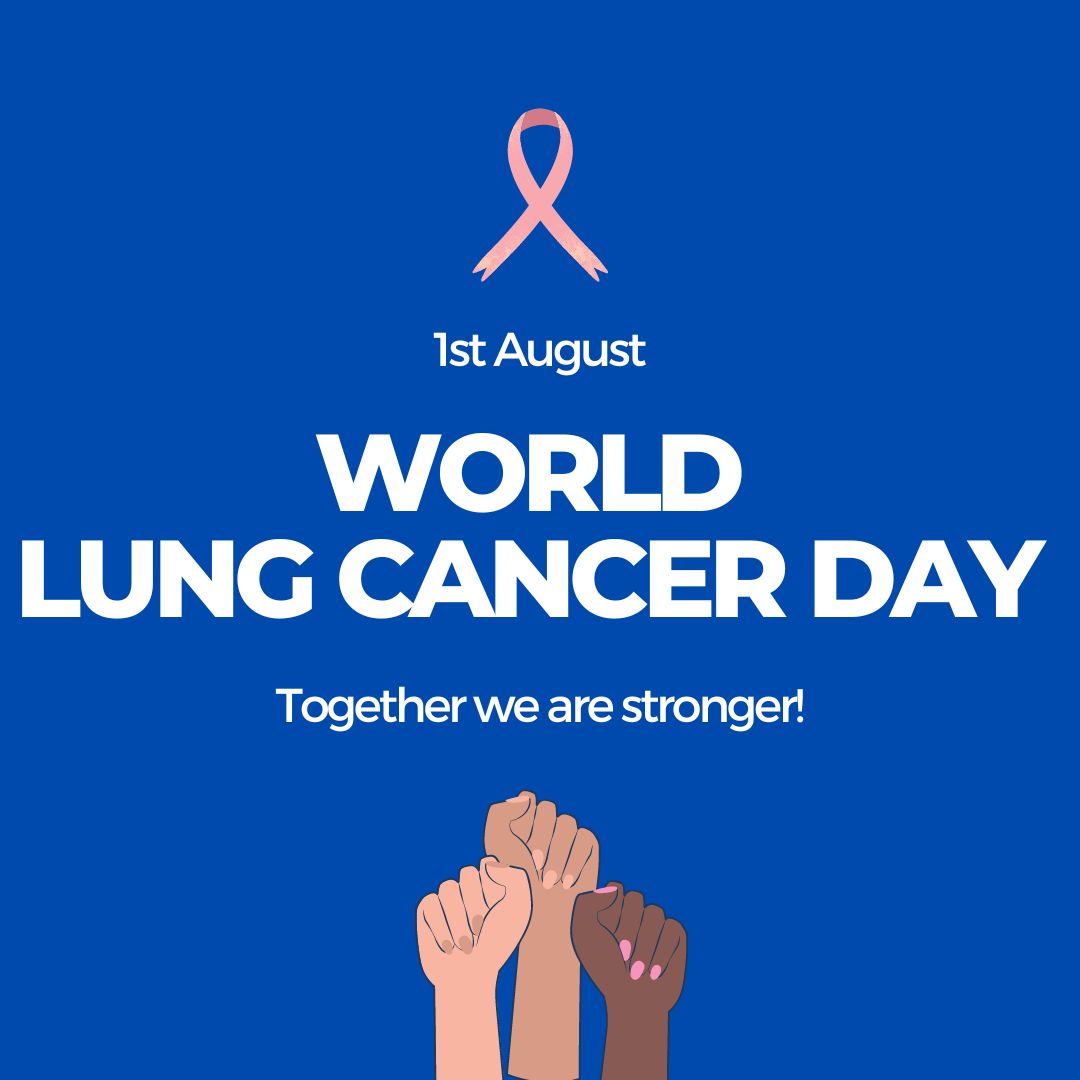On Lung Cancer Day, it's essential to raise awareness about this serious health condition that affects many people around the world, including in India. Lung cancer is a type of cancer that starts in the lungs and can spread to other parts of the body if not detected and treated early.
Causes of Lung Cancer: Lung cancer is a serious health condition that deserves our attention and understanding. By diving deeper into its causes, we can empower ourselves to make informed decisions and take preventive measures.
Smoking: One of the primary culprits behind lung cancer is smoking. Long-term and heavy smoking significantly increases the risk of developing this disease. The harmful chemicals present in tobacco smoke can damage lung tissues over time, leading to cancerous growth.
Secondhand Smoke: Even if you don't smoke, exposure to secondhand smoke can still put you at risk. Breathing in the smoke released by others while smoking can be harmful and contribute to lung cancer development.
Radon Gas: Radon, a naturally occurring radioactive gas, is another potential cause of lung cancer. It can seep into buildings, and long-term exposure to high levels of radon can be dangerous, especially in enclosed spaces.
Air Pollution: Living in areas with high levels of air pollution can also increase the likelihood of developing lung cancer. Inhaling pollutants and harmful particles from the environment can be detrimental to lung health.
Genetics and Family History: While lifestyle factors play a significant role, some individuals may have a genetic predisposition to lung cancer. A family history of lung cancer can also raise the risk for some individuals.
Lung Cancer Symptoms: Lung cancer is a serious disease that can affect anyone, and it's crucial to recognize its symptoms for early detection and timely treatment. While the early stages may not show noticeable signs, being aware of the symptoms can save lives.
1. Persistent Cough: A prolonged cough that lingers for weeks or months and does not seem to go away can be a cause for concern. If you notice a persistent cough, especially if it worsens over time, it's essential to get it checked by a medical professional.
2. Chest Pain: Unexplained chest pain or discomfort can be an indication of lung cancer. The pain may feel dull or sharp and might worsen with deep breathing, coughing, or laughing.
3. Difficulty Breathing: Shortness of breath or breathlessness, even during mild physical activities, can be a significant symptom of lung cancer.
4. Fatigue: Feeling constantly tired or experiencing a significant decrease in energy levels without any apparent cause should not be ignored. Fatigue can be a sign of various health issues, including lung cancer.
5. Recurrent Respiratory Infections: Frequent infections such as bronchitis or pneumonia, especially if they keep coming back, might be indicative of lung cancer or other lung-related issues.
It's essential to remember that these symptoms can also be caused by other health conditions, and experiencing them does not automatically mean you have lung cancer. However, if you notice any of these persistent symptoms or are at higher risk due to smoking or exposure to harmful substances, it's essential to consult a healthcare professional promptly.
Precautions for Lung Cancer:
Say No to Smoking: The most crucial precaution is to avoid smoking and any tobacco-related products. If you're a smoker, consider quitting as soon as possible. Seek support from friends, family, or professional help to kick the habit for good.
Stay Away from Secondhand Smoke: If you're a non-smoker, avoid exposure to secondhand smoke. Encourage others not to smoke indoors or near you and prioritize smoke-free environments.
Test for Radon Gas: Radon gas is a silent threat, as it is odourless and colourless. Test your home for radon levels, and if necessary, take measures to reduce exposure.
Avoid Occupational Hazards: If your work involves exposure to harmful substances like asbestos or other pollutants, follow safety guidelines and use protective gear.
Be Mindful of Symptoms: Pay attention to any persistent symptoms like a chronic cough, chest pain, or difficulty breathing. Don't ignore warning signs; consult a healthcare professional for proper evaluation.
Treatment Options for Lung Cancer: In India, lung cancer is responsible for a substantial number of cancer-related deaths. Among all cancer types, it ranks among the top three leading causes of cancer-related mortality. Its prevalence is particularly prominent in urban areas with higher levels of air pollution and exposure to harmful substances.Treatment options for Lung Cancer in India include:
1. Surgery
2. Radiation Therapy
3. Chemotherapy
4. Targeted Therapy
5. Immunotherapy
6. Palliative Care
Risk Factors: The primary risk factor for lung cancer is tobacco use, including smoking cigarettes, bidis, and chewing tobacco.
Medical Advances: Despite the challenges, advancements in medical technology and treatments offer hope in the fight against lung cancer. Improved diagnostic techniques, targeted therapies, and immunotherapies have shown promising results in extending survival and improving the quality of life for lung cancer patients.
While Lung Cancer Day reminds us of the importance of awareness and prevention, individuals need to take charge of their health and undergo regular check-ups. By adopting a healthy lifestyle and being vigilant about potential symptoms, we can collectively work towards reducing the impact of lung cancer in India and globally. Remember, early detection and timely treatment can make a significant difference in the fight against lung cancer.

 By adopting a healthy lifestyle and being vigilant about potential symptoms, we can collectively work towards reducing the impact of lung cancer in India and globally. Remember, early detection and timely treatment can make a significant difference in the fight against lung cancer.
By adopting a healthy lifestyle and being vigilant about potential symptoms, we can collectively work towards reducing the impact of lung cancer in India and globally. Remember, early detection and timely treatment can make a significant difference in the fight against lung cancer.










.jpeg)

.jpg)


















.jpg)